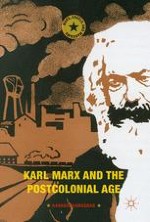2018 | Supplement | Buchkapitel
10. Rebuilding the Theory of Crisis as a Postcolonial Task
verfasst von : Ranabir Samaddar
Erschienen in: Karl Marx and the Postcolonial Age
Aktivieren Sie unsere intelligente Suche, um passende Fachinhalte oder Patente zu finden.
Wählen Sie Textabschnitte aus um mit Künstlicher Intelligenz passenden Patente zu finden. powered by
Markieren Sie Textabschnitte, um KI-gestützt weitere passende Inhalte zu finden. powered by
